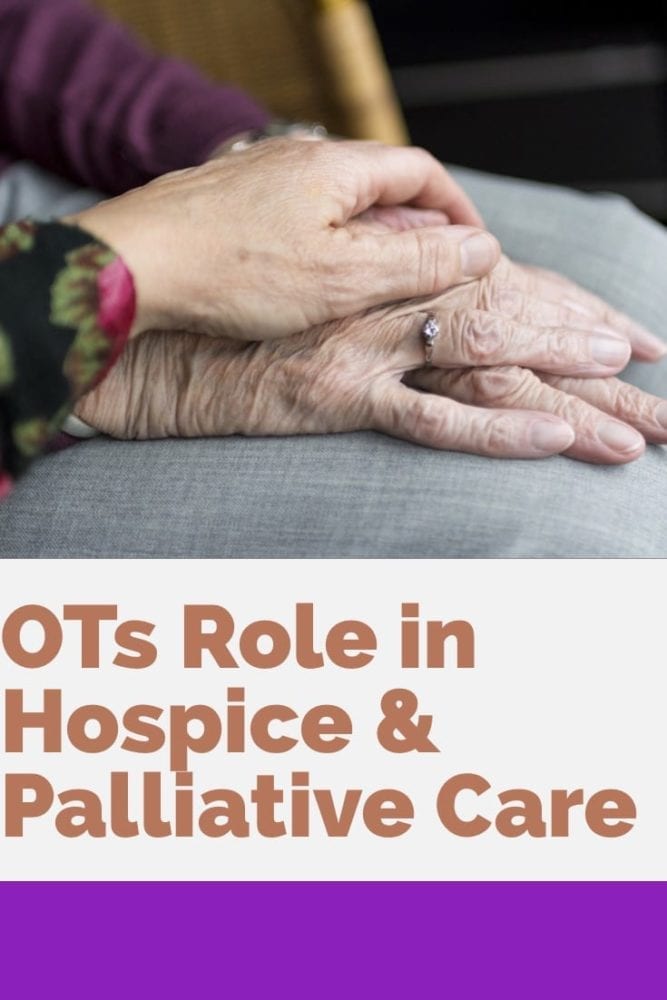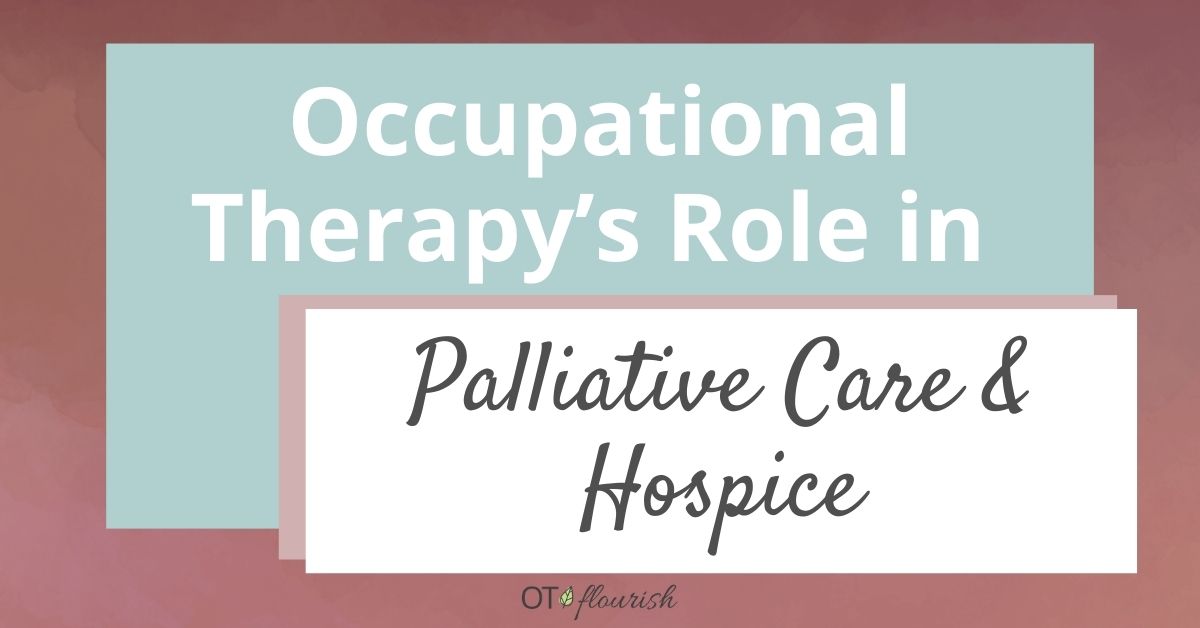Occupational Therapy and hospice care practitioners improve quality of life in patients by helping people engage in those meaningful occupations, even if it is at their end of life. Karmella Bognot MS, OTR/L shares her experience working in occupational therapy in oncology and palliative care people in a hospice setting and how our role as OT practitioners is just as important in this stage of life, as it is when they are younger.
What is the role of occupational therapy in end-of-life care?
Occupational therapy and hospice plays an important role in end-of-life care. It helps patients and their families to make the most of their remaining time together by focusing on activities that bring comfort and joy. Occupational therapists can help with physical, emotional, and spiritual needs, and can provide support to help patients and their families cope with the changes that come with a terminal illness using tools such as therapeutic use of self.
They can also provide guidance on how to make the most of the time that is left, such as helping to create meaningful activities that can be enjoyed together. Occupational therapists can also provide support for caregivers, helping them to manage the physical and emotional demands of caring for a loved one at the end of their life.
Resources:

The Role of Occupational Therapy and Hospice and Palliative Care fact sheet
Talking About the Unspoken: Death & Dying (course from Occupationaltherapy.com).
The Care for the Dying: A critical historical analysis of occupational therapy in hospice: Open Journal of Occupational Therapy
Follow Karmella on Instagram for all things Hospice: @humansofhospice





